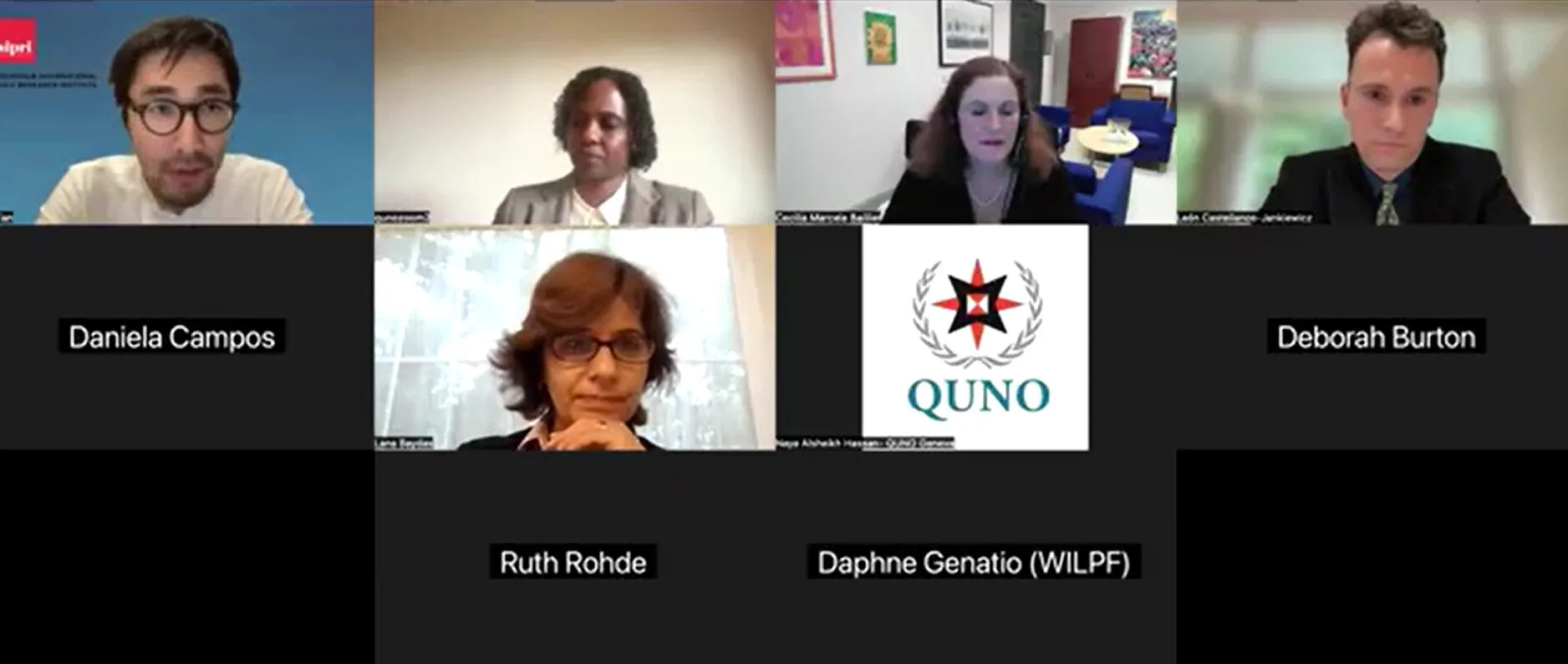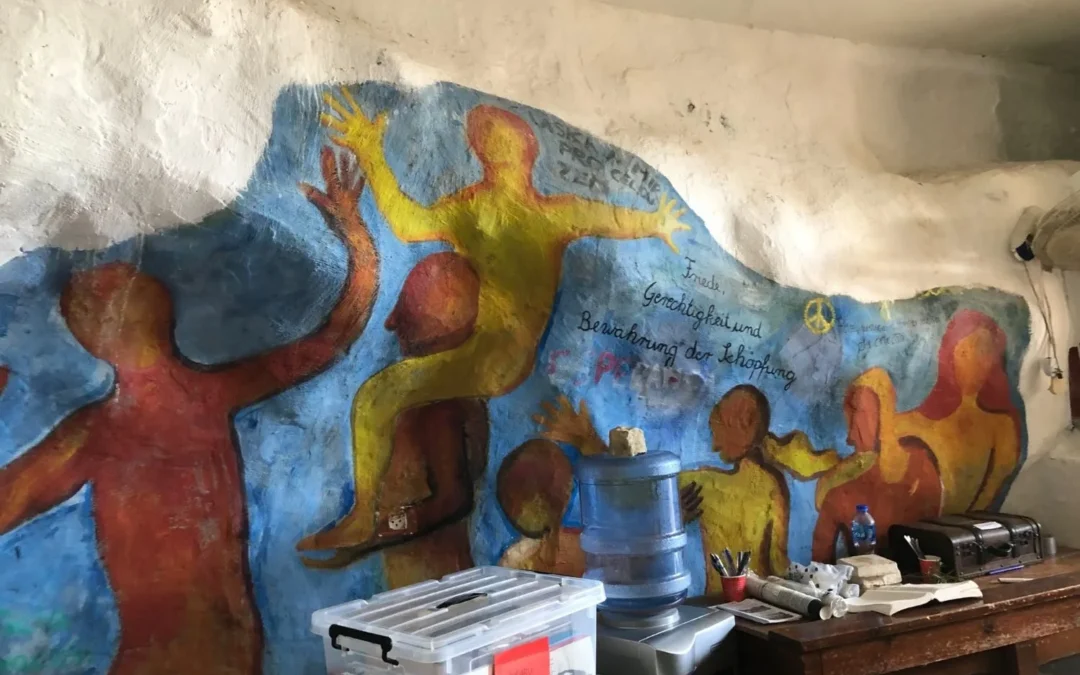To discuss the costs and risks of exponentially rising military spending, the Quaker United Nations Office (QUNO) Geneva, together with the American Bar Association Center for Human Rights (ABA CHR) and the Women’s International League for Peace and Freedom (WILPF), co-hosted a public webinar involving a panel of 5 experts from diverse fields.
The event, “The Real Costs of the Push to Rearm in Europe and Beyond: Implications for Arms Control, Business and Human Rights, and International Law” explored how the rapid increase in global defence budgets affects social investment, democratic governance, and climate resilience.
It was attended by a broad community, with participants from the fields of disarmament, arms control, peace-building, human rights, humanitarian law, climate change, gender equality, representing governments, international organizations, academia, civil society, and members of the general public.
Setting the Scene
Dr. Yvette Issar (QUNO) underscored that global military spending has reached an all-time high of 2.7 trillion USD, a figure projected to rise sharply in the coming decade. These rising figures “are not yielding greater peace, but are instead undermining our shared vision for a sustainable future.”
The following guiding questions were posed at the outset of the discussion:
- Have escalating defence budgets made the world safer?
- What are the social, economic, human rights and democratic trade offs of runaway rearmament?
- Do ordinary citizens support such spending or would they prefer to see resources instead redirected to development, health, education and human rights priorities?
Dr. Nan Tian (SIPRI) outlined current trends in military expenditure, describing an “exceptionally difficult geopolitical environment” marked by record levels of conflict and insecurity. He cautioned that rising military budgets are crowding out investment in sustainable development and risk deepening the “security paradox,” where States’ pursuit of safety through armament leads to greater instability. Dr. Tian called for renewed focus on human-centred approaches to security that balance defence needs with social and environmental investment.
Legal and Governance Dimensions
Dr. León Castellanos-Jankiewicz (Asser Institute) analysed the EU’s “Rearm Europe” initiative, noting both its unprecedented scale and its regulatory challenges. He warned that crisis-driven policymaking could erode safeguards on environmental, labour, and human rights standards, but also pointed to opportunities for progress through enhanced transparency and due diligence in arms procurement processes.
Prof. Cecilia Bailliet (UN Independent Expert on Human Rights and International Solidarity) emphasized that durable peace depends on strong civic participation and solidarity. “Peace must be built—it does not happen on its own,” she said, urging investment in peace education, empathy, and intercultural dialogue as foundations for social resilience. She also drew attention to the UN Charter’s focus on peaceful dispute resolution, noting that rising military spending reflects the normalization of violent conflict, while diplomacy, peacebuilding and distributive mechanisms that underlie positive peace are underfunded and deprioritized.
The Social, Political and Environmental Costs
Ms. Ruth Rohde (Shadow World Investigations) highlighted the serious opportunity costs of rising military expenditure, including worsening security, and reduced funding for health, education, and development cooperation. She warned that the growing influence of the arms industry risks weakening democratic oversight and transparency, and called for stronger accountability in the defence sector.
Ms. Deborah Burton (Tipping Point North South) drew attention to the environmental impact of militarization, noting that the military sector contributes an estimated 5.5 percent of global greenhouse gas emissions—more than civil aviation and shipping combined. She urged governments to integrate military emissions into national reporting under the UN Framework Convention on Climate Change and to redirect a portion of military spending to climate finance. She also drew attention to the military-fossil fuel nexus.
A Shared Responsibility
All panelists identified the same underlying challenge: the need for a redefinition of security that places people and planet at its centre.
Dr. Issar concluded: “Many, including Quakers, have long called for reductions in military spending, and have been branded as idealist or naïve. But rebalancing global priorities is not idealism. It is a survival imperative. Our civilization depends on us getting this rebalancing right.”
This webinar was intended as a contribution to this important debate, which organzers hope will result in further dialogue and collaborations.
A summary transcript (the final page of which includes links to key reference documents) has been made available, and the full recorded program can be viewed here and below.







